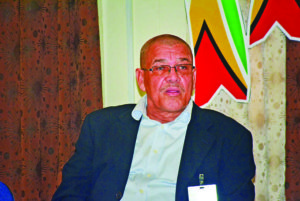…incentives to be provided for informants
In a bid to crack down on the billions it is losing to tax avoidance and other assorted criminal activities, the Guyana Revenue Authority (GRA) will be using recently passed laws and other legislative avenues to build its intelligence network. It is understood that this includes providing financial incentives to whistle-blowers.
According to GRA Commissioner General Godfrey Statia, this practice is one supported by the law.
“It’s allowed in law. We just have to put things in place and the Minister has to sign off on it, and then we’ll be able to pay them,” he stated recently. Also providing information on this plan was head of GRA’s Custom and Trade Administration, Lancelot Wills.
According to Wills, the Witness Protection and the Protected Disclosures Act are the most relevant laws to the issue. He also noted that the Revenue Protection Act had a role to play in the regulatory framework.




